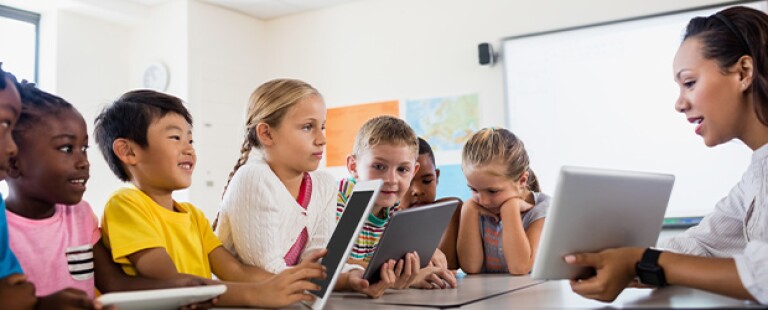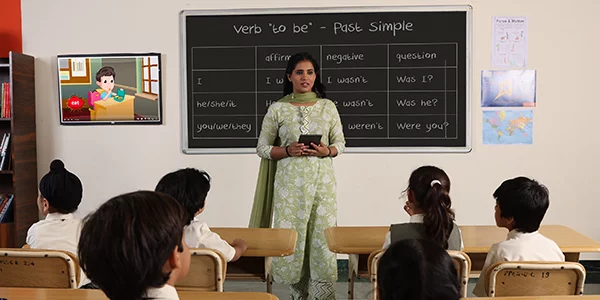Affordable Primary Science Tuition Singapore for All Learning Needs
Affordable Primary Science Tuition Singapore for All Learning Needs
Blog Article
Discover the Important Advantages of Comprehending Key Science for Young Learners
The value of main scientific research education for young students prolongs much beyond mere expertise purchase; it functions as an essential column in establishing essential abilities such as essential reasoning, analytic, and creativity. Engaging with clinical concepts with inquiry-based and interactive activities not just cultivates curiosity yet likewise lays the foundation for resilient, confident learners. As we discover these advantages further, it comes to be clear that the ramifications for future academic and individual growth are extensive. What particular techniques can teachers employ to make best use of these benefits?
Enhancing Critical Assuming Skills
Promoting critical believing skills in young learners is crucial for their cognitive advancement and future academic success. Critical thinking allows kids to examine details, assess evidence, and make informed decisions, which are crucial abilities in today's information-rich culture. By engaging in clinical query, young students can enhance these skills as they explore ideas with experimentation, thinking, and observation.
In main science education, instructors can promote important thinking by urging students to ask inquiries, create theories, and carry out experiments. This hands-on technique permits children to exercise analytical and create sensible thinking abilities. When pupils investigate the residential properties of materials or the principles of motion, they find out to evaluate their findings seriously and draw final thoughts based on proof.
Furthermore, conversations and collective tasks can advertise critical thinking by supplying possibilities for students to articulate their ideas, challenge assumptions, and take into consideration diverse perspectives. By producing a supportive atmosphere that values query and reflection, educators can support essential thinking skills that encourage young students to come to be long-lasting learners and independent thinkers. Eventually, enhancing these abilities lays a robust structure for their future scholastic endeavors and individual development.
Promoting Interest and Expedition

Primary science education and learning gives an organized environment where young learners can discover numerous phenomena through hands-on experiments and observations. By allowing them to connect with products and engage in inquiry-based understanding, instructors develop opportunities for youngsters to develop hypotheses, check their ideas, and reason. Such experiences nurture a sense of marvel and excitement about scientific research.

Building Self-confidence in Issue Addressing
Structure self-confidence in analytical is a critical part of primary science education and learning that equips young learners to approach difficulties with durability and imagination - primary science tuition Singapore. They create essential skills in critical reasoning and evaluation when youngsters are motivated to engage with scientific principles via hands-on tasks and inquiry-based understanding. This process not only enhances their understanding of clinical concepts yet likewise promotes a sense of ownership over their discovering
To develop self-confidence, teachers must create an encouraging environment where mistakes are deemed chances for development instead of failures. This encourages students to take dangers and check out various services to issues. By supplying scaffolding and support, instructors can aid students browse intricate jobs, progressively boosting their independence in analytical circumstances.
Furthermore, collaborative understanding experiences, such as team tasks or experiments, can additionally improve trainees' confidence as they find out to express see this their ideas and pay attention to others' perspectives. These interactions nurture social abilities and strengthen the concept that analytic is often a cumulative undertaking. Eventually, growing confidence in problem-solving prepares young learners for future academic obstacles and equips them with the devices necessary for long-lasting learning.
Encouraging Creativity and Advancement
In the realm of primary scientific research education and learning, motivating creativity and development is crucial for cultivating a dynamic learning environment. By fostering a society where young learners can explore ideas and experiment openly, instructors aid students develop important thinking skills and an enthusiasm for discovery. Creativity in scientific research motivates kids to ask inquiries, design theories, and participate in hands-on activities that boost their creativity.
Incorporating open-ended tasks and inquiry-based knowing into the educational program enables pupils to share their one-of-a-kind perspectives and remedies. For circumstances, when charged with fixing a problem pertaining to their environment, students can conceptualize several methods, causing creative outcomes that showcase their creativity. This not only deepens their understanding of clinical concepts however likewise instills a feeling of ownership over their learning process.
Furthermore, creative science education and learning supports partnership amongst peers, as trainees commonly share ideas and improve one an additional's insights - primary science tuition Singapore. This collaborative spirit advertises not just technology but also essential social abilities. Thus, by focusing on creative thinking and innovation in key science education and learning, we empower young learners to believe critically, accept obstacles, and picture possibilities, laying a strong structure for long-lasting discovering and expedition
Preparing for Future Discovering Obstacles
Young learners' ability to navigate future discovering obstacles depends upon a strong foundation in primary science education and learning. This fundamental understanding furnishes pupils with critical believing abilities and a systematic method to analytic, necessary for dealing with intricate problems in an ever-evolving globe. Main scientific research promotes inquiry-based knowing, urging trainees to ask inquiries, check out hypotheses, and participate in hands-on experiments.
As they create these skills, students come to be proficient at assessing data, acknowledging patterns, and drawing notified final thoughts. Such expertises are important not only in clinical fields yet likewise in technology, engineering, and mathematics (STEM), where interdisciplinary knowledge is significantly important.
Additionally, main science education and learning grows a sense of curiosity and durability in young students, allowing them to watch difficulties as opportunities for growth. As they encounter and get over obstacles in their clinical explorations, they build self-confidence in you could try here their capacity to innovate and adapt.
Inevitably, a strong structure in key science not just prepares young students for academic searches but also furnishes them with the devices necessary for lifelong learning and flexibility in a rapidly transforming international landscape. By investing in key science education, we are spending in the future potential of directory our learners.
Conclusion
Comprehending main scientific research is important for young students, as it cultivates important reasoning, inquisitiveness, and creative thinking. Eventually, the benefits of key scientific research education prepare kids for future scholastic quests and impart long-lasting learning habits crucial for growing in an ever-evolving world.
The significance of primary scientific research education for young learners extends far beyond simple expertise procurement; it serves as a fundamental column in creating important abilities such as important reasoning, analytic, and creative thinking. By creating a supportive setting that values inquiry and reflection, educators can nurture crucial assuming skills that equip young students to come to be long-lasting students and independent thinkers. Hence, by focusing on imagination and development in key scientific research education and learning, we encourage young students to believe seriously, accept difficulties, and visualize possibilities, laying a solid structure for lifelong knowing and exploration.
Young learners' capability to browse future understanding challenges pivots on a strong foundation in key scientific research education and learning.Recognizing main science is important for young students, as it fosters important thinking, curiosity, and creative thinking.
Report this page